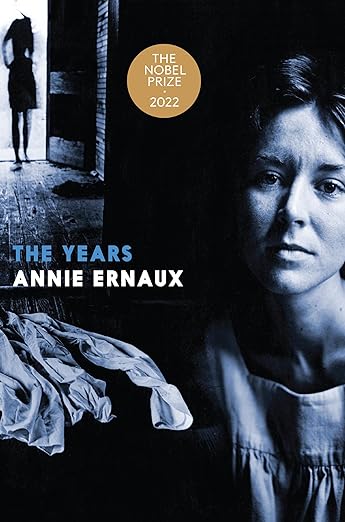The Gym No. 20: How to care about technology, part II
Evading hot takes with Annie Ernaux
If you missed part I, it’s here. The tl;dr: The slide deck is often not the best medium for teaching, learning, or thinking together, but in my circle we are currently way overreliant on slide decks in work and education, which is an example of how the reciprocal relationship between the things we make and how we make things can take us in a weird direction when we’re not paying attention. Paying attention is hard to do when tools are increasingly alien to us—that is, not analogous to our experiences of the physical world—but the consequences will probably get worse, and weirder.
***
A few weeks ago, I made a slide deck at work to help explain my lack of hot takes on generative AI. Content designers, like others for whom text is the most visible currency of their job, are sort of expected to have hot takes, since text is also currently the most visible currency of generative AI. In lieu of a hot take, I wanted to expose a long view, a ship-not-the-iceberg take, nothing hot.
The slide deck had few words, but I wrote notes for what I would say: I began with how it seems like I, a writer, should be interested in the latest AI apps because almost every layer of an AI chatbot is made of words, grammars, syntax, intent—there are source data made of language and algorithms based on language and models made of language and interfaces and inputs and outputs all made of language, or what looks like language. I wanted to use the plural of “corpus,” in the sense of the body of written work and data that a generative-AI chatbot sources its answers from. Upon looking it up in Merriam-Webster, I learned that it’s corpera and also that the first definition of corpus is “the body of a human or animal especially when dead” [emphasis mine of course].
***
In my slide deck, and in part I of this letter, I explained how books by Robert Hassan and Alva Noë, two academics, illuminated for me the reciprocal relationships between human practices and their tools, and how, as our tools get less analogous to our experience of the physical world, we give up our agency in that relationship. A third book I read during this period was The Years by Annie Ernaux, who is not an academic, although she did teach high school and work at a French institute for distance learning for many years.

The Years is an epic memoir covering the second half of the 20th century and the first few years of the 21st. It’s written not with I but with we. (This is a simplification, and Ernaux’s translator, Alison L. Strayer, provides more details in her notes.) One phenomenon that Ernaux achieves with the collective pronoun is that her voice channels the lives of many—those of her parents’ generation, traumatized by World War II, and her own, including facets of herself in different periods of her life. It’s still an intimate memoir; she is their medium.
The book, as she discloses in metanarrative as it progresses, is a life’s work, a memoir of a culture, of a generation, of multiple generations, of a girl and mother and wife and lover, of women and humans whose lives are entwined in politics and touched by war, of experience both personal and collective, of moments both specific and broad.
The Years is not, of course, about technology, but technology is one of many phenomena of Ernaux’s life, proportionate but steady. Ernaux, like Hassan and Noë (and Marshall McLuhan and Erika Hall and Walter Ong), reflects on how the changing tools of everyday life—television, the Walkman, the personal computer—changed how people experienced entertainment, art, tasks, and connection.
Over the decades spanned in the book, we see how the humans of Ernaux’s generational cohort are changed. Her musings have the precision of the long view (time being the best editor):
“The questions that arose with the appearance of new technologies were canceled out as their use became second nature and required no thought.”
“We never ceased to upgrade.”
***
Near the end of The Years, Ernaux’s focus narrows to what she most wants to capture, to remember: it’s light. Technology and the greater (but all entwined) forces of war, politics, prejudices, duty, and economics have fallen away. What’s left is the way the light slants on one scene in her memory, the way it drenches another. There is a list. It’s a couple of pages long, no more.
Light bathes the living; Ernaux stewards the collective experience into the slanted rays. Rather than a reduction, Ernaux’s we is capacity, fullness, growth.
The corpus is made up of dark, cold bits of humanoid language waiting to be retrieved like stuff at an Amazon warehouse. Even as it mathematically expands, it’s flat, finite.
“The profusion of things concealed the scarcity of ideas and the erosion of beliefs.”
Ernaux did not write about Amazon or AI corpera per se—The Years predates their largesse, and anyway, it’s not the things but their effect on humanity that is the point.
***
